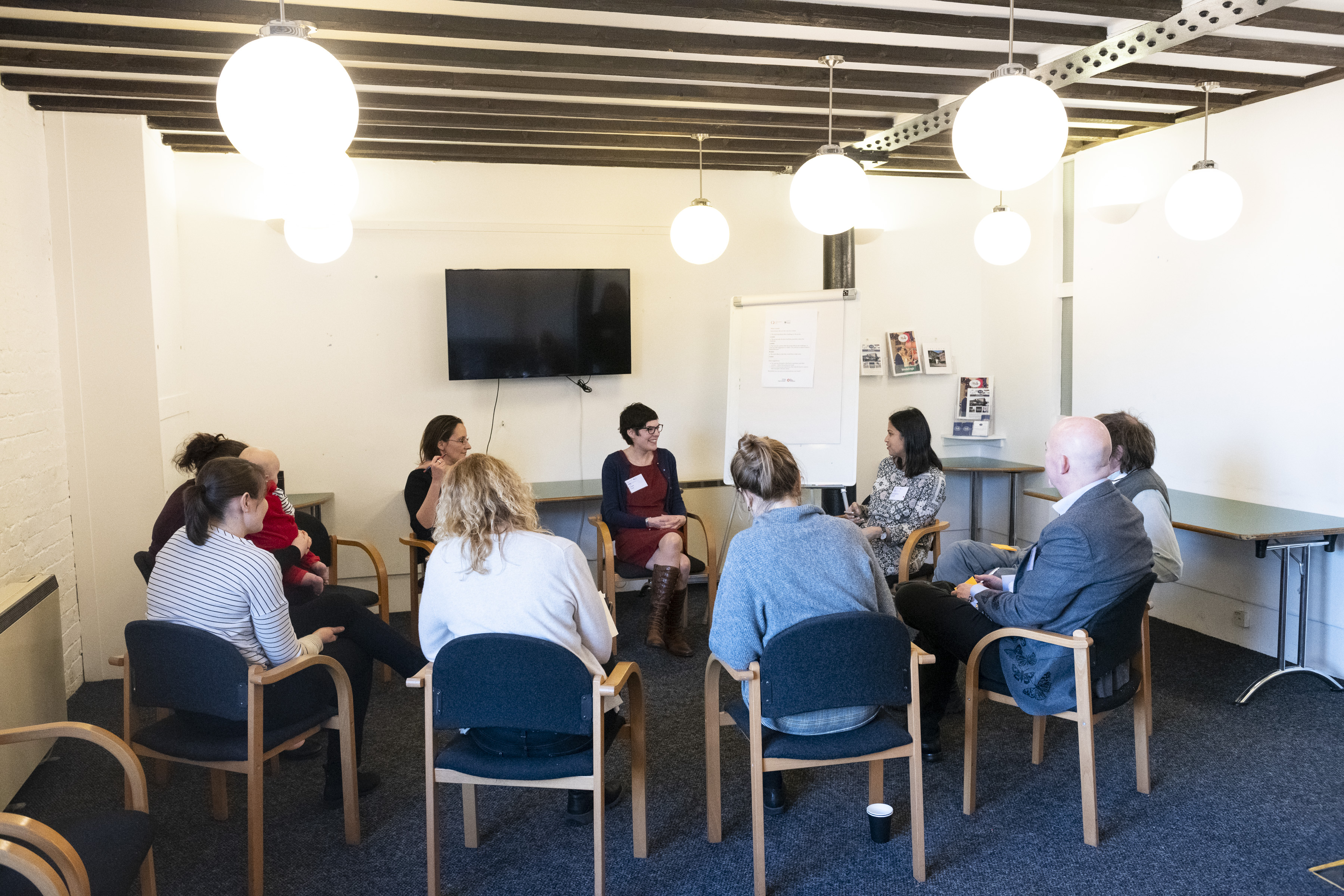The Q Lab and Mind are currently working with four organisations (‘test teams’) to develop and test practical actions to improve care for people with both mental health problems and persistent back and neck pain.
This is the third blog in a short series, sharing the journeys so far of the test teams and the ideas they will develop and test with the Q Lab over the coming months.
In this blog Owen Hughes, Consultant Counselling Psychologist and Head of Pain and Fatigue Management Service at Powys Health Teaching Board, reflects on the importance of creating a shared understanding throughout a service to engage potential participants.
About our pain service
At the Pain and Fatigue Management Service in Powys we run a variety of programmes for people with persistent pain and the aim is to help people learn skills for managing their condition.
Our service covers a large area – a quarter of Wales. Being in a rural location, we have to ensure that people can access our programmes in a way that suits them. People can attend locations in the community and also be seen virtually via Skype, meaning they don’t necessarily need to travel. We want to give people the choice and control to access the support in a way convenient to them, so they are more likely to engage and benefit from the service.
We want to give people the choice and control to access the support in a way convenient to them, so they are more likely to engage and benefit from the service.
The model of care we use is based on a biopsychosocial model – focusing on understanding someone’s individual goals and values, to support them to live the life that matters to them. We know that persistent pain can have a huge impact on people’s physical, social and mental wellbeing, which is why we already use a multidisciplinary approach for delivering and designing care – that helps us to support someone’s mental health needs as well as their physical health.
The service focuses on improving function rather than reducing pain, as that often sees the best results for the individual. We work with people to help them set an agenda and make choices that encourage them to self-manage. Shared decision making is integral to the way we work – from the initial options booklet people receive, to collaboratively setting agendas in appointments. Each interaction is designed so people can start to feel informed to make choices to improve their knowledge and develop skills to live well with their condition.

What we want to improve
Although in Bronllys we already integrate mental health care into our pain services, as a small team covering a large rural patch, we are always looking at ways to improve our service and support our patients. Being involved with the Q Lab and Mind has helped us look outside our usual ways of thinking and gain a useful external perspective.
One of the challenges we’d like to explore with the Q Lab is improving engagement – both from referrers and potential participants. During our ‘kick-off’ session with the Q Lab and Mind, we reflected on how our team values and culture are embedded in the service and how that might affect how people engage – looking from the perspective of both potential participants and practitioners who refer into the service.
Being involved with the Q Lab and Mind has helped us look outside our usual ways of thinking and gain a useful external perspective.
A key area of focus will be improving people’s understanding of the service and our model of care, to improve experiences and outcomes. Our first step is to develop a mission statement that underpins our values that we can share easily with practitioners and potential participants to improve awareness and understanding of the service.
Recently we’ve started to do some analysis about engagement with the services and our processes. We found that some people don’t engage with the service at one of the first interactions – when they receive their initial booklet explaining their options, and we think this could be because our offer isn’t clear enough, or that the materials are not accessible to some groups. We want to test our assumptions by working with service users to develop improvements to how people can engage with the service from this first interaction. We will also be exploring some of the barriers to shared decision-making and how we can improve this process.
Get involved
As we continue this work over the next few months, we’d be really interested in hearing from other Lab participants who might be working on similar challenges. Do fellow Q members have experiences of shared decision making? Or are you also looking to increase engagement of your service? We’d be keen to hear your learning and insights – please do get in touch.
We’ll continue to share learning with the Q Communtity from our testing journey with the Q Lab over the next few months, but of course feel free to get in touch via the Q website or join the online group to stay connected with the work.